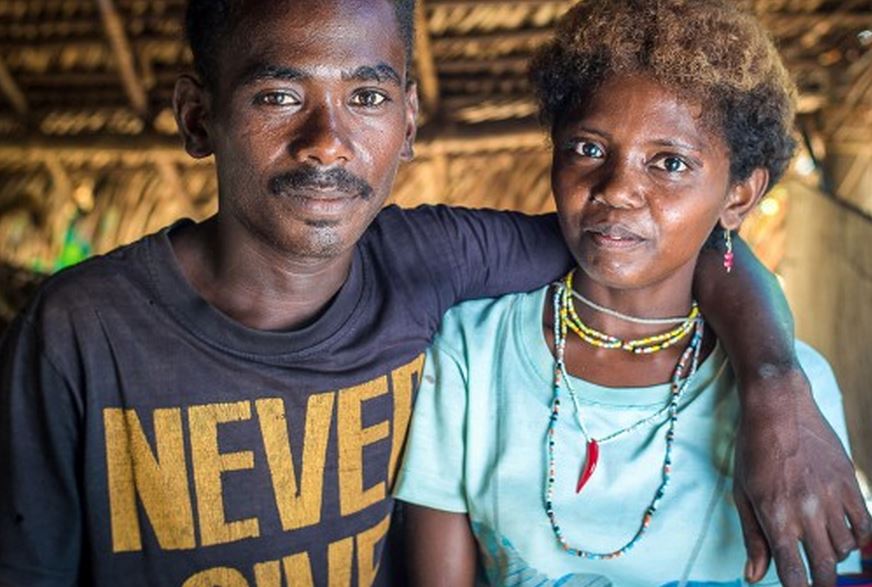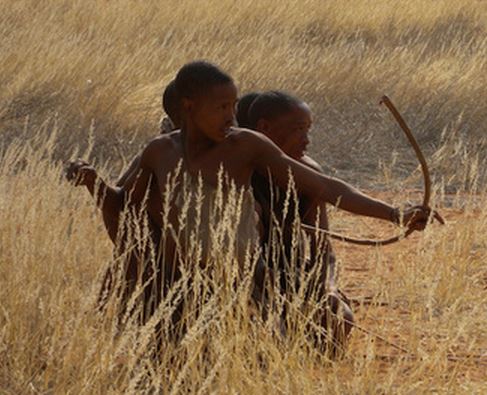Modern hunter gatherers have a unique social structure. As far as residential decision-making is concerned, sex-equality is the norm – men and women have an equal say – according to researchers from University College London (UCL).
When a devastating earthquake hit Nepal in April, people worldwide sent donations to the country, as well as other offers of support. We are among the most cooperative animals on Earth. However, scientists are unsure how we got this way. Perhaps it was due to gender equality. Our social networks widen when men and women have equal say on who they associate with.
Anthropologists used to believe that our social networks grew as a result of associating with blood relatives. Families moved in with cousins and grandparents, who themselves lived near other close kin. A 2011 study of thirty-two hunter-gatherer communities, however, found that most people living together in large groups were not genetically related.

This Filipino hunter-gatherer couple may have equal say in where their family lives. (Image: Science)
There is a low level of relatedness in hunter-gatherer bands, i.e. many of them live in groups with few close relatives. This is unusual, because modern humans depend on close relatives to raise children, and thus generally exhibit a strong preference to live nearby parents, grandparents and siblings.
In this new study, funded by the Leverhulme Trust and published in the journal Science, Mark Dyble, from UCL Anthropology, and colleagues demonstrated for the first time the relationship between sex equality, and residential decision-making and group composition.
The team, from the Hunter-Gatherer Resilience Project in UCL Anthropology, lived among hunter-gatherers in the Philippines and Congo.
They interviewed hundreds of hunter-gatherers and collected genealogical data on between-camp mobility, kinship relations, and residence patterns.
These data allowed the authors to understand how the people in each community they visited were related to one another.
No relatives in small community
Even though they were living in small communities, these hunter-gatherers were found to be living with a high number of individuals with whom they were not related at all.
The researchers created a computer model to simulate the process of camp assortment. In the model, people populated an empty camp with their close relatives – children, parents and siblings.
When only one sex influenced this process, as usually occurs in male-dominated pastoral or horticultural societies, camp relatedness was found to be high.
However, when both men and women have influence, group relatedness is much lower – as occurs in many hunter-gatherer societies, where families tend to alternate between moving to camps where the husbands have close relatives and camps where the wives have close kin.
If all want the same, none get it
Mr. Dyble said:
“While previous researchers have noted the low relatedness of hunter-gatherer bands, our work offers an explanation as to why this pattern emerges.”
“It is not that individuals are not interested in living with kin. Rather, if all individuals seek to live with as many kin as possible, no-one ends up living with many kin at all.”
Many unique human characteristics including high intelligence, cumulative culture and hyper-cooperation have evolved because of the social organization patterns only humans have.
Although hunter-gatherer societies are under growing pressure from external forces, they offer the closest modern examples of human lifestyles and social organisation that existed in the past, the researchers claim, offering fundamental insights into human evolutionary history.
Senior author, Dr Andrea Migliano, also from UCL Anthropology, said:
“Sex equality suggests a scenario where unique human traits such as cooperation with unrelated individuals could have emerged in our evolutionary past.”

How do we know modern hunter-gatherers behave like our ancient ancestors did?
Are today’s hunter-gatherers like our ancestors?
Michael Balter, writing in Science Latest News, says several experts caution that gender equality might be just one of a number of factors that drove human hyper-cooperation.
Mr. Balster quotes Kim Hill, an anthropologist at Arizona State University, Tempe, who said:
“The paper is a very interesting and useful exercise. But I would be reluctant to accept their model as the [only] answer.”
One should be wary of assuming that modern hunter-gatherers behave like our ancient ancestors did, partly because many have disturbed social systems following their contact with modern civilisation.
Polly Wiessner, an anthropologist at the University of Utah in Salt Lake City, who has studied many hunter-gatherer groups in Africa, including the !Kung people, said:
“The extreme egalitarianism we see today (in many hunter-gatherer groups) is due to a breakdown in more formal structures and cultural rules.”
Citation: “Sex equality can explain the unique social structure of hunter-gatherer bands,” M. Dyble, A. B. Migliano, G. D. Salali, N. Chaudhary, A. Page, D. Smith, R. Mace, J. Thompson and L. Vinicius. Science 15 May 2015: 348 (6236), 796-798. DOI:10.1126/science.aaa5139.

